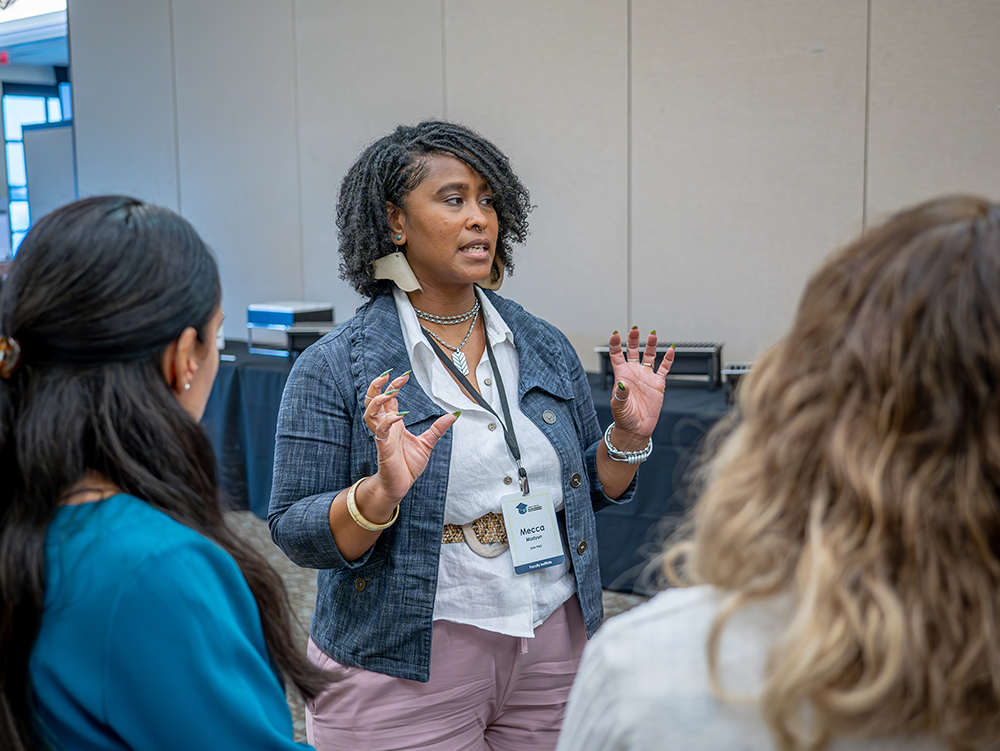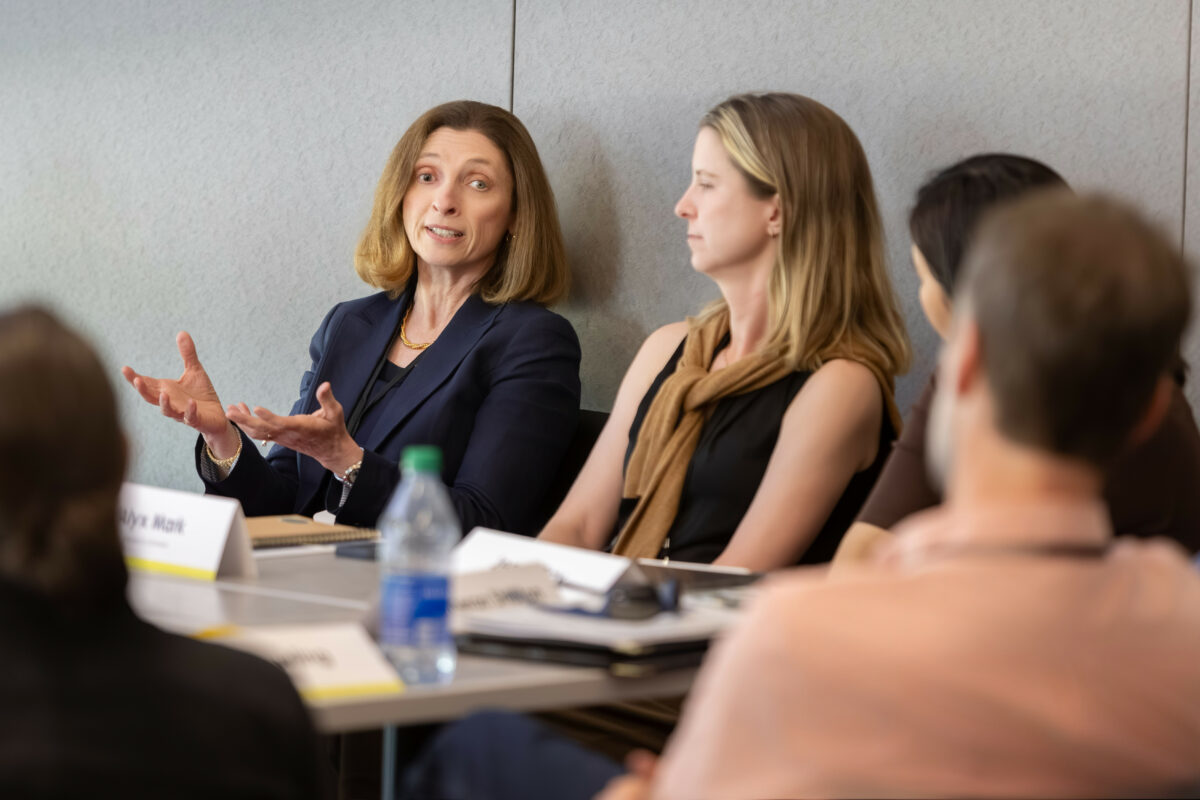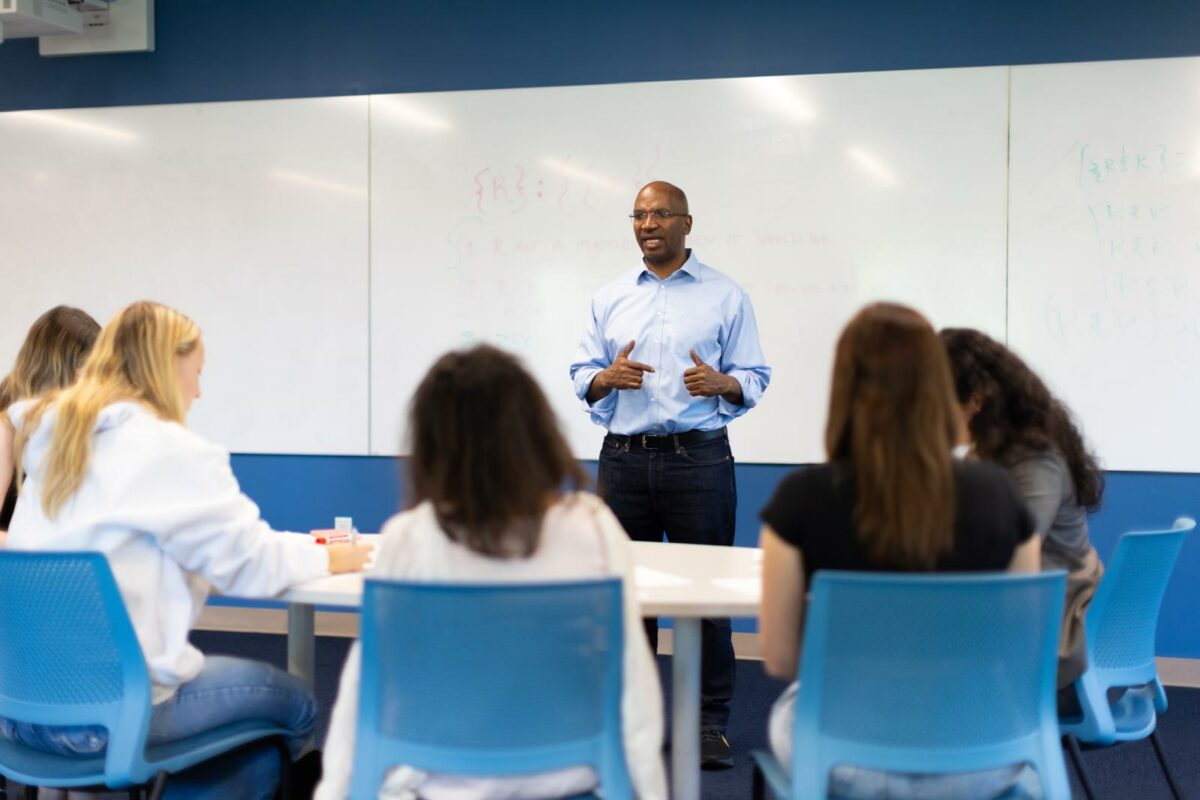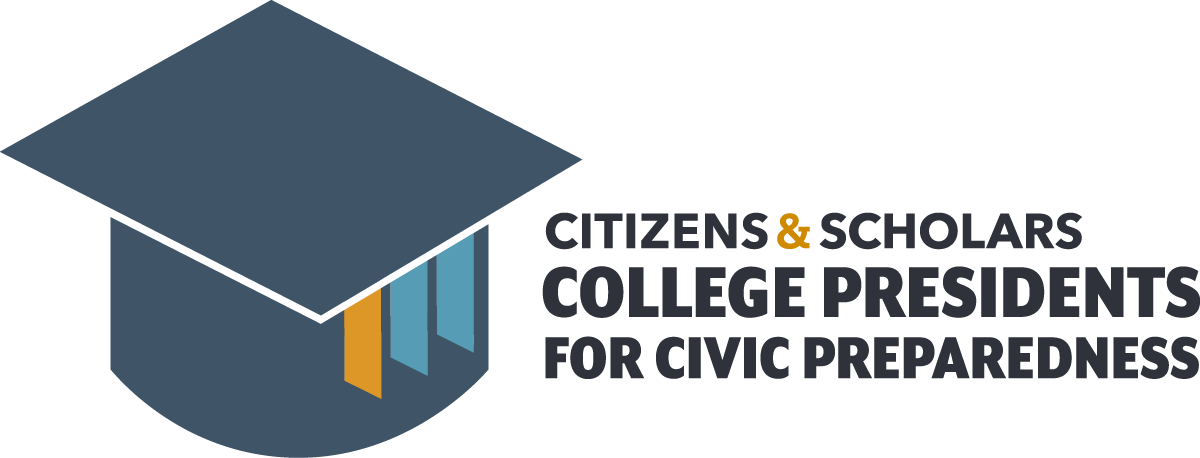Announcing the Inaugural Faculty Fellows: Strengthening Civic Education from the Classroom and Beyond

At a time when higher education is in the national spotlight—grappling with free speech debates, polarization, and questions about its role in democracy—some professors are leaning in, not backing down.
Today, the Institute for Citizens & Scholars is proud to announce the inaugural cohort of Faculty Fellows: 37 educators from colleges and universities across the country who are leading a powerful shift in how civic learning and inclusive dialogue happen in higher ed.
These professors aren’t waiting for a mandate. They’re creating it. From biology labs and business schools to public health courses and technical education, Fellows are showing that civic preparedness doesn’t live in one department. It can—and must—be part of every student’s experience.
A Fellowship for Faculty Leading Civic Renewal
The Faculty Institute is an 18-month, high-impact initiative that supports faculty who are building new models of classroom dialogue, critical thinking, and democratic learning. Fellows receive support to adapt or create courses, collaborate with peers across institutions, and join a growing national network of educators working to renew higher education’s civic mission.
As part of the College Presidents for Civic Preparedness coalition, this program centers the essential role of faculty—not as culture war combatants, but as trusted educators—on the front lines of shaping campus norms, free expression, and civic responsibility.

Impact Inside and Outside the Classroom
These 37 Faculty Fellows are reaching thousands of students. Their work extends beyond syllabi and assignments; it’s changing how students engage with one another—and with the world. Fellows are creating spaces where students can wrestle with complex ideas, listen generously, and disagree respectfully.
Take a few examples:
- Kara Dillard (James Madison University) created a “Better Conversations Together” program that equips all 5,000 first-year students with skills in deliberative democracy.
- Angela Graves (SUNY Alfred State College of Technology) developed civic discourse modules for occupational studies students in trades and tech, using real-world themes like labor and regulation to explore dialogue across difference.
- Tami Ashford-Carroll (Benedict College) redesigned her public health curriculum to begin with a community agreement—fostering a classroom culture of respect and lived experience.
Each of these efforts reflects a simple but powerful idea: Civic readiness is teachable. And the classroom is where it starts.

What Sets This Apart
This isn’t just a one-off project. It’s a national, cross-disciplinary, and faculty-led movement:
- Cross-Pedagogy: Fellows represent every type of teaching style and academic field from Biology to Philosophy.
- Classroom and Campus Impact: Their efforts change course content and student norms and understanding, and encouraging democratic engagement in and beyond the classroom.
- A Lasting Community of Practice: Over 18 months, Fellows build a shared network—sharing tools, ideas, and courage for tackling democracy’s hardest questions.
As campuses across the country navigate turbulent terrain, these Faculty Fellows are lighting the path forward.
We’re honored to support them—and inspired by what’s ahead.
Meet the 2025 Faculty Fellows
Tami Ashford-Carroll, Chair, Health & Sport Management, Benedict College
Chad M Bauman, Professor of Religion, Faculty Director of the Core Curriculum, Butler University
Jessica Brater, Associate Professor & Coordinator, Theater Studies BA & MA Programs & Graduate Certificate in Theatre of Diversity, Inclusion & Social Change, Montclair State University
Lori Britt, Professor, School of Communication; Co-Director, JMU Institute for Constructive Advocacy and Dialogue (ICAD), James Madison University
Dan Chong, Professor of Political Science, Rollins College
Susan Daniel, William C. Hooey Director and Fred H. Rhodes Professor of Chemical Engineering; Faculty-in-Residence, Barbara McClintock Freshmen Residence Hall, Cornell University
Jenny Day, Associate Professor of History and Chair in China Studies, Skidmore College
Joseph Derdzinski, Senior Lecturer, Political Science, Colorado College
Kara Dillard, Executive Director, Madison Center for Civic Engagement, James Madison University
John Draeger, Professor and Director, Teaching and Learning Center, SUNY Buffalo State
Laura Driver, Assistant Professor, Department Chair, English & Communications, County College of Morris
Ezzedine Fishere, Senior Lecturer, Dartmouth College
Jessica Flanigan, Associate Professor of Leadership Studies and Philosophy, Politics, Economics, and Law; Richard L. Morrill Chair in Ethics & Demographic Values, University of Richmond
Tracy Gleason, Professor of Psychology, Wellesley College
Alex Gorelik, Associate Professor of Mass Communication, Benedict College
Angela Graves, Associate Professor, Social & Behavioral Sciences, SUNY Alfred State College of Technology
Mecca K. Madyun, Assistant Professor of Civically Engaged Teaching and Learning & Faculty Director, Center for Civic Engagement (CCE), Drew University
Elizabeth C. Matto, Director, Eagleton Institute of Politics, Research Professor, Rutgers University–New Brunswick
Katherine McCabe, Assistant Professor of Political Science, Rutgers University
James Paul (JP) Messina, Assistant Professor, Philosophy, Purdue University
Eric J. Morser, Professor and Director of Civic Engagement, Skidmore College
Sara Mrsny, Associate Director, Stanford University
Sombo Muzata, Assistant Professor of Political Science, James Madison University
Kristen T. Oertel, Mary F. Barnard Professor of History, The University of Tulsa
Daniel Palazzolo, Professor of Political Science and Co-Director of the Gary L. McDowell Institute, University of Richmond
Ericka Poppell, Adjunct Faculty, Department of Science, York County Community College
Cameron Shelton, McMahon Family Associate Professor of Political Economy, Claremont McKenna College
Rachel Sigman, Assistant Professor, Joseph Korbel School of International Studies, University of Denver
Elton Skendaj, Director, Democracy and Governance Program, Georgetown University
Eric Smaw, Professor of Philosophy, Rollins College
Jonathan Smolin, Professor, Middle Eastern Studies and Affiliate in Jewish Studies, Dartmouth
Paul Stob, Professor of Communication Studies, Director of American Studies, Vanderbilt University
Leland Tabares, Assistant Professor, Race Ethnicity and Migration Studies, Colorado College
Tanesha A. Thomas, Assistant Professor of Sociology, Montclair State University
Lauren Tilton, E. Claiborne Robins Professor of Liberal Arts; Director, Center for AI and Liberal Arts
Aliyah Turner, Instructor of Sociology, DePauw University
Felicia Williams, Lecturer, Butler University
